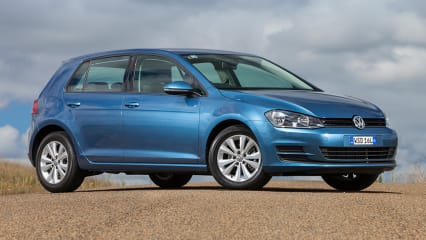Small all-wheel drive hatchbacks are rare in Australia, as only a comparatively tiny number of people live in the sort of environments that require the added traction and surety that AWD provides.
Also, most Australian consumers seeking AWD tend to go for smaller SUVs, since they are easier to get in and out of, offer a higher seating position and generally enjoy better resale values. On the flipside, SUVs cost more to buy and run, are not as stable at increased speeds due to their higher centre of gravity and are larger to manoeuvre in tighter parking spots than a small hatchback.
The Subaru Impreza remains the least expensive small AWD hatchback you can buy new, as well as the sole mainstream-branded model starting at under $30,000.
However, while the latest-generation Impreza launched in 2016 it's a huge improvement over previous iterations (with service intervals finally extended to 12 months/12,500km), there are a few more compelling alternatives in small crossovers – that is, the in-between segment between small cars and SUVs; they boast a few extra centimetres of ground clearance without the bulk. Note only a few crossovers offer AWD as an option.
A recent stint in the new Impreza-derived XV 2.0L Hybrid revealed it to be a powerful and economical crossover with excellent handling and road-holding capabilities. The same applies to the Mazda3-based CX-30 AWD, the Toyota C-HR 1.2L-turbo AWD and Volkswagen T-Roc 140TSI 4Motion - though none are as frugal as the Subaru.
If you're not sold on the idea of an crossover AWD and prefer a small AWD hatchback, then your only other option is to stretch to premium European hatchbacks like the Mercedes-Benz A250 4Matic, BMW M135i xDrive, Audi A3 quattro and Volkswagen Golf R. But all generally cost upwards of $60,000 drive-away - and that's before some of the more desirable options fitted.
Finally, unless you are travelling hundreds of kilometres ever week, there is probably no benefit choosing diesel over petrol, as the former fuel is dirtier for the environment and not as quiet and refined as the latter. Additionally, diesels are falling out of favour with buyers due to their harmful emissions, and most companies are switching to petrol/electric hybrids as a solution. Again, this means the Subaru XV Hybrid AWD.
A long response we know, Jan, but we hope this helps.



